| Dear Hiveans | Liebe Hiver | Queridos Hiveanos |
|---|---|---|
| Today I'd like to share my favourite excerpts from the book "Gold, Blood and Power - Finance and War Through the Ages" (goodreads) by James Lacey, who "serves as professor and course director for War, Policy, and Strategy, as well as Political Economy at the Marine Corps War College. He holds a Bachelor of Arts in History from The Citadel and a Ph.D. in Military History from Leeds University." (source) | Heute möchte ich meine Lieblingsauszüge aus dem Buch „Gold, Blood and Power - Finance and War Through the Ages“ (goodreads) von James Lacey vorstellen, der „als Professor und Kursleiter für Krieg, Politik und Strategie sowie politische Wirtschaft am Marine Corps War College tätig ist. Er hat einen Bachelor of Arts in Geschichte von The Citadel und einen Doktortitel in Militärgeschichte von der Universität Leeds.“ (Quelle) | Hoy me gustaría compartir mis extractos favoritos del libro «Gold, Blood and Power - Finance and War Through the Ages» (goodreads) de James Lacey, que «es profesor y director de cursos de Guerra, Política y Estrategia, así como de Economía Política en la Escuela de Guerra del Cuerpo de Marines. Es licenciado en Historia por The Citadel y doctor en Historia Militar por la Universidad de Leeds». (fuente) |
As Keith Hopkins has points out, the Roman Empire had three distinct segments:
- The outer ring of the frontier provinces in which the defensive armies were stationed;
- An inner ring of rich, tax exporting provinces (Gaul, Spain, Egypt, North Africa, Asia Minor, Syria); and,
- The center, Rome, later joined by Constantinople.
The crucial element of Rome’s long-term survival, therefore, rested on keeping the tax-exporting provinces secure and stable. Only by doing so, could the Roman elite maintain themselves in luxury, while still feeding approximately one-quarter million Roman citizens free of charge. Moreover, by the time of the empire, neither Rome nor the Italian peninsula produced sufficient excess wealth to sustain itself, and neither could pay even a small fraction of the cost of a large professional army. Therefore, it fell to the provinces to fund the frontier armies, on which their safety and prosperity depended. Even at the time, Rome recognized that the frontier provinces or zones would never produce enough wealth to sustain the troops stationed there. The great Cicero, a republican who never confronted the expense of empire, was known to complain that many provinces were barely able to pay anything in their own defense.
As the Empire ceased its previously rapid expansion, this source of funding dried up, and it had to rely on its own internal resources to support its strategic policies. Anyone trying to grasp the full range of strategic options available to Rome must first comprehend the extent of this resource base. Using recent estimates, Raymond W. Goldsmith places Roman government expenditures during the Augustan era at between 600 and 825 million sesterces. This amounts to between 3 and 4% of the total national product of the empire. While Rome may have been able to raise a few percent more during times of crisis or civil war, such spending could not be long sustained. Given the practical economic limits placed on Roman expenditures how much of a military force could the empire bear? Through the first 3 centuries of the empire, Rome, on average, spent approximately 450 million (perhaps as high as 500 million) sesterces annually on the maintenance of its military. This represents about half of total imperial expenditures during the early empire. For this, they got a military establishment of 150,000 legionaries, 150,000 auxiliaries, a Praetorian Guard, transport, and a navy. Interestingly, the amount Rome spent on its military is only a fraction of the personal revenues and expenditures of the Roman elite, which was several times that of the empire’s treasury. This disparity likely increased in the later empire, as private fortunes grew even as the Empire began having trouble maintaining its tax base. Rome’s inability, or unwillingness, to access the accumulated wealth of its elites was a crucial handicap when the funds necessary to secure the Empire ran short. Nero may not have fiddled as Rome burned, but many of its richest citizens continued leading the high-life even as the Goths, Vandals, and Franks poured across the frontiers.
| Rome's government expenditures were 3-4% of the GDP (in the US today it's 10 times that, 35-40%). And more than half of that went into the military (in the US today it's 1/10 of its budget, or 3.3% of GDP). I'd conclude that non-military expenditures of the US government are excessive and needs to be cut drastically - because this spending spree is unsustainable (remember Niall Ferguson's law “Any great power that spends more on debt service than on defense will not stay great for very long."). And many countries (hello Europe) are way worse than the US. | Die Staatsausgaben Roms betrugen 3-4 % des BIP (in den USA sind es heute 10 Mal so viel, 35-40 %). Und mehr als die Hälfte davon floss ins Militär (in den USA ist es heute 1/10 des Haushalts oder 3,3 % des BIP). Daraus schließe ich, dass die nicht-militärischen Ausgaben der US-Regierung übermäßig hoch sind und drastisch gekürzt werden müssen - denn diese Ausgabenflut ist nicht nachhaltig (siehe auch Niall Fergusons Gesetz „Jede Großmacht, die mehr für den Schuldendienst als für die Verteidigung ausgibt, wird nicht lange groß bleiben“). Und viele Länder (hallo Europa) sind noch viel schlimmer als die USA. | El gasto público de Roma era del 3-4% del PIB (en EE.UU. hoy es 10 veces mayor, 35-40%). Y más de la mitad se destinaba al ejército (en EE.UU. hoy es 1/10 de su presupuesto, o el 3,3% del PIB). Yo llegaría a la conclusión de que los gastos no militares del gobierno de EE.UU. son excesivos y deben recortarse drásticamente, porque esta carrera de gastos es insostenible (recuerden la ley de Niall Ferguson: «Cualquier gran potencia que gaste más en el servicio de la deuda que en defensa no seguirá siendo grande durante mucho tiempo»). Y muchos países (hola, Europa) están mucho peor que Estados Unidos. |
At the end of what may be properly called the first truly world war — The War of Spanish Succession (1702-13) — every major nation in Europe was fiscally exhausted. For 3,000 years, wars had been limited by the inability of pre-modern states to raise the financial resources necessary to engage in conflicts on a grand scale. But, by the dawn of the 18th century, new financial methods were coming to the fore, hugely increasing both the scope and cost of warfare. For instance, William and Mary had been forced to issue £6,900,000 in debt to fight the War of the League of Augsburg with France (1688-97). To fight the War of Spanish Succession, however, Britain issued £28,796,006 in new debt. The war was barely affordable to Britain, but proved ruinous to other nations’ fiscal positions, particularly France’s. Various nations attempted a wide variety of schemes to consolidate their debts, and then to follow the British lead in lengthening loan maturities (when they would have to pay them back). No nation was quite able to replicate the British achievement, as it was based on institutions (Parliament) other nations had yet to develop. The most notorious of these schemes was established in France by the Scotsman, John Law. It was Law’s idea that crashed most spectacularly, when the infamous “Mississippi Bubble” popped.
Law’s notion involved replacing the use of gold with paper money, expanding government debt, and then transforming all of France’s old and new debt into equity (stocks) of private firms, the most magnificent of which was the Mississippi Company. Law also established the Banque Générale Privée (General Private Bank) to handle paper money transactions, which were issued in large volumes with the bank’s holdings of government debt (three-fourths of the bank’s total reserves) being used as capital. In 1720, Law combined the bank and the Mississippi Company, along with other ventures, into a single entity. Before the year was out, an inevitable run on the bank, coupled with a spectacular drop in Mississippi Company share prices collapsed the entire system, forcing Law to escape France dressed as a woman. The French government
chose to walk away from its debt obligations, plunging France into economic turmoil for a generation and ruining the monarchy’s ability to secure international credit up through the Revolution that deposed it. In fact, France’s inability to regain its financial footing in succeeding decades is considered by many historians as the underlying cause of the French Revolution and, by extension, the rise of Napoleon.
Even swelling tax revenues, with rates increasing by a factor of 4.5 by war’s end, could not begin to meet the voracious funding demands of global war on an industrial scale. Before the war ended, annual British government expenditures were 13 times greater than those of peacetime, similar to the burden all the other major warring states faced. To meet these huge fiscal demands, Britain and other nations resorted to all three major methods for advanced economies to raise revenues: taxes, debt, and printing money. Before the war ended, British national debt increased by a factor of 10, with the debt-to-GDP ratio increasing from 26% to 127.5%. This is remarkably close to the debt-to-GDP ratios set by the United States and Britain during World War II and might therefore be considered the limits of what a nation can afford, even in wartime.
… Moreover, Britain, accustomed in previous wars to subsidizing its allies (something it still did for France and others through-out the war), was forced to turn to others, particularly the United States, to fund a substantial portion of the war’s cost. When even all of this proved insufficient, the Exchequer turned to printing money, doubling the monetary base by war’s end. Some of this was inescapable, but as printing money was always an easy escape from immediate financial difficulties, it was kept at too high a volume for too long, stoking a near ruinous inflation.
The financial panics of 1857, 1873, 1893, and 1907 had caused great hardship and greatly undermined faith in the U.S. financial system. It was the Panic of 1907, however, which finally and fully revealed to the general public the impotence of the U.S. Government to deal with a financial crisis. In the face of this crisis, government actions were always a combination of late, insufficient, or ineffectual ones. In the end, the financial system was rescued by J. P. Morgan, who locked 50 top financers in his library and forbade them food or drink until they agreed to provide enough liquidity to fund the banking system and to shore up the foundering U.S. financial infrastructure.
… Unwilling to further entrust the U.S. financial future to the good graces of any single individual, Congress embarked on a number of reform measures over the following years. The most notable of these, the imposition of an income tax (soon after the ratification of the 16th Amendment) and the creation of the Federal Reserve System proved crucial to U.S. funding efforts during the war. The income tax was levied for the first time in the year before the war (1913). Approximately 368,000 persons from a total population of over 100 million paid just over $28 million into the treasury. By 1916, the income tax was yielding $68 million, which, when added to the corporate tax ($57 million), was enough to cover half of the nation’s defense budget in that year. Unfortunately, it was only about 1/50th of the annual cost of the budget, once the United States entered into hostilities. The creation of the Federal Reserve (Fed) gave the United States a powerful tool for the management of the nation’s finances. Although the Fed experienced substantial teething pains during its first months of operations, it immediately made itself felt during the war. The Fed, which began operations in 1914, was established to overcome the problem with monetary inelasticity. That is, at the start of every financial difficulty, persons and corporations immediately withdrew their money from the banking system and started hoarding cash, gold, and silver. Such a rapid contraction of the money supply was usually enough to push a minor hiccup in the system into a full-fledged crisis. The Fed, through open market operations, and a host of lesser means that became even more sophisticated, became the lender of last resort. Rather than rely on J. P. Morgan to force bankers to add liquidity to the system, the Fed provided the U.S. Government the means for boosting the money supply at the first sign of a credit crunch.
| "overcome the problem with monetary inelasticity"? Problem? One crucial purpose of money is to be scarce and inelastic. Only if money is scarce, investors can decide properly how to allocate it, only then bad projects can be eliminated, and less resources are wasted. | „das Problem der monetären Unelastizität überwinden“? Das Problem? Ein wesentlicher Zweck des Geldes ist es, knapp und unelastisch zu sein. Nur wenn Geld knapp ist, können Investoren entscheiden, wie sie es sinnvoll einsetzen, nur dann können schlechte Projekte eliminiert werden, und es werden weniger Ressourcen verschwendet. | ¿«superar el problema de la inelasticidad monetaria»? ¿Problema? Un propósito crucial del dinero es ser escaso e inelástico. Sólo si el dinero es escaso, los inversores pueden decidir adecuadamente cómo asignarlo, sólo entonces se pueden eliminar los malos proyectos y se malgastan menos recursos. |
At the start of the war, the United States held 19% of the world’s gold stock. At war’s end, it had absorbed an additional 16% of the world’s pre-war money gold and increased its own stock by 88%. In addition, Europeans sold $2 billion in U.S. securities, while borrowing $2.4 billion during the first year of the war alone. For the first time in its history, the United States became a creditor nation.
At the start of World War I, U.S. Government spending averaged about $65 million a month, or on an annual basis 2.3% of GDP. By the start of 1917, spending had increased by $20 million a month, but as inflation was roaring, the total expense as compared to GDP fell (2.2%). After America’s entry into the war, monthly expenses increased rapidly. By the end of the war, the government was spending over $2 billion a month, about 32% of GDP on an annual basis. Like all modern wars, the United States had three main options for financing the war — increasing taxes, raising debt, or printing new money. As it turns out, the majority of the war effort was financed by borrowing (58%). The rest was paid for by taxes (22%) and by printing money. As a result of these financing operations, what is now called “high-powered money,” or the monetary base, more than doubled. As the United States had yet to develop the measures to sterilize this excess cash, the resulting inflation had a severe negative impact on the economy.
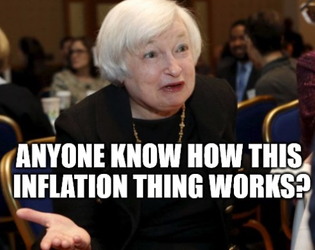
At an average interest rate of 4%, coupled with preferential tax treatment, these wartime issues of debt were highly competitive with any other investment vehicle. Patriotism may have been part of the selling technique, but purchasers were making a hardy profit on their patriotic feelings. If these bonds were purchased primarily to demonstrate support for the war effort one would expect to see purchases below the prevailing market rates (patriotic duty). This, however, did not occur at any point during the war. Americans in general were apparently only willing to financially support the war if forced to through increased taxes, or if rewarded through high investment returns. Through such measures, some 20 million persons—almost a quarter of the population —purchased Liberty Bonds in one form or the other. Unfortunately, the methods used by the Treasury and the Fed proved to be highly inflationary. There were many causes for this, but the primary one was that the Fed “encouraged” its member banks to make loans to individuals, which they could then use for the purchase of war bonds. Investors could take out cheap loans from banks and then buy bonds paying a higher interest rate than what the banks were charging them on the loans, thereby locking in a guaranteed (often tax-free) profit equal to the spread between the two. In practical terms, the Fed, by giving the banks the money to loan out for this purpose, was printing money, although it went to great efforts to disguise this fact.
An examination of World War II’s financing, however, indicates that the printing press played a much greater role than commonly assumed, particularly in the early war years. For at least the first 2 years of the war, the Fed’s printing presses worked overtime, and the money supply expanded accordingly. Such a rapid expansion, if kept up for too long a period, would, of course, have crippled the economy as inflation took hold. But in the exigency of the moment, it was the only method fast enough to fund the jump-start and rapid growth of production necessary to meet immediate war needs. In the first place, the government-instigated monetary contraction, which had extended the length and depth of the Depression more than any other single factor, had not been rectified by the time the United States entered the war. So, there was room to expand the stock of money without sparking inflation, particularly as the government had halted the production of high ticket durable consumer items. Leon Henderson, head of the Office of Price Administration, began instituting relatively effective price controls. Moreover, if businesses were going to expand, they required immediate working capital, and there was plainly not enough of it available in the economic system in 1941. In short, the in-circulation monetary base (cash or near-cash equivalents) in 1941 was too small to support the daily activities of the massive American economy as it mobilized for war. Unless the government added cash to the system quickly, there was a real possibility the entire mechanism would seize up.
| This book was a quick read about the importance of finance for war, and how empires and countries in different times managed to get troops on the ground. Especially interesting for history and finance buffs. | Dieses Buch war eine schnelle Lektüre über die Bedeutung der Finanzen für den Krieg und darüber, wie Imperien und Länder in verschiedenen Zeiten es geschafft haben, Truppen auf den Boden zu bringen. Besonders interessant für Geschichts- und Finanzinteressierte. | Este libro fue una lectura rápida sobre la importancia de las finanzas para la guerra, y cómo los imperios y los países en diferentes épocas se las arreglaron para conseguir tropas sobre el terreno. Especialmente interesante para los aficionados a la historia y las finanzas. |
Have a great day,
zuerich
And memes ....
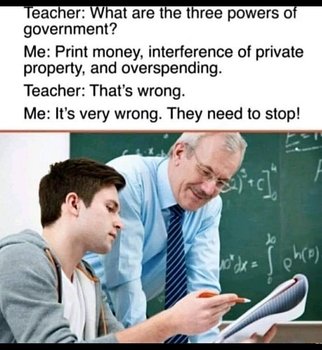




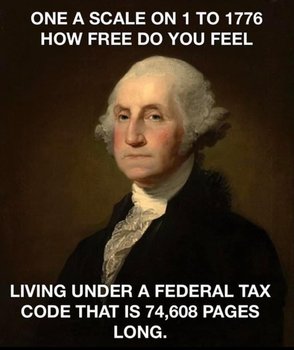


People's craziness started earlier than I thought... in 1947 it seems

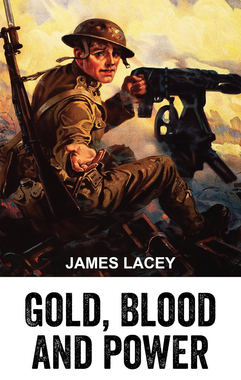
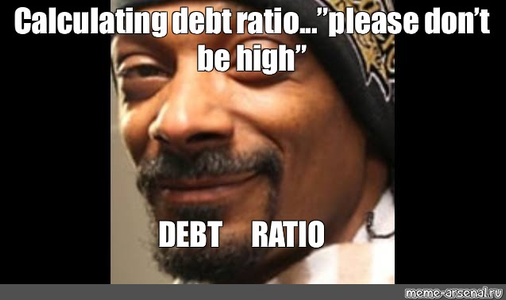
Very good @zuerich. 👍 Lots of "meat and potatoes" for thoughtful reflection in this post. For anyone willing to even begin to consider the true "state of affairs," in the big, wide world all around us.
Yep. One of my favorite historical topics is a true (hmmm, seems to be a ... "trend" ... here) comparison of the American and the French revolutions - just a few years apart from each other. I cannot improve on one author summing it up with:
And yet ... Today ... How far down the road is my beloved country to going through its own version of the French revolution, with its philosophical (and spiritual) underpinnings? As a direct cause and effect of the "progressive" Left's relentlessly attacking and rewriting the history of the American revolution, with its true philosophical (and spiritual) underpinnings?
Only God knows. While it saddens me that "we" (collectively) do even now have a free will choice to make in avoiding the inevitable and yet still far too commonly experience the unwillingness to (again, collectively) make it, I can sum up my thoughts on your excellent post here with this famous quote:
And end with my oft-stated "I hope to be proven wrong." We do not have long to wait to find out what the American people have chosen to do.
The only way to prevent the planned and profitable destruction of the American Republic is for the American people to defend it themselves. Delegating their authority to one of the liars destroying it (while claiming to be the only way to defend it) will keep the destruction ongoing. There is no other mechanism whereby Americans can keep their free republic than robustly securing it with their personal arms.
American governments have been corrupted for as long as they have existed, and the largest and oldest the most. The more wealth jurisdictions have the more more vigorously they are infiltrated and commandeered, and the longer they have existed the longer corruption has been eating their innards. The smallest and least financially endowed governments have the least to offer criminals and are the best observed and audited by civilians, thus the least corrupted governments are small towns.
America doesn't have any Blue states. It has a few dozen big blue cities trying to sink their fangs into the financial veins of jurisdictions that are less corrupt. Democracy in this way is a threat to our republic, because big cities of corrupt criminals can outvote many small towns on statewide issues. Voting won't do any good. The lesser evil is still evil, and there are no good choices when corrupt criminals control who gets to be a candidate.
The only thing that stops evil is well armed good men. That's the only thing that made America, kept America, or can keep America free, prosperous, and secure. Voting works great in places where everybody knows each other and work together to build their community. Above Dunbar's Number (~150, IIRC) election fraud, lies, and corruption take over. The more laws there are, the less free people are, and the longer lawmakers have been making laws, the less able good men are to defend their freedom, because laws are cumulative and pile up on law abiding people.
This is why cats are more free than people, any people anywhere, and not just Afghani girls. America needs to be more like a herd of cats, and less like Afghani girls, IMHO. It's a lot harder to take food from hungry cats than the food is worth, and that's how Americans should be about freedom. Freedom is priceless, so we need to defend it with extreme vigor because it's worth a fortune to criminals that can take it away.
Yep, we can agree on this much:
Over 30 years ago, as a political activist, I was literally in the homes of over 200 people (minimum) in soliciting help, with my ... "pitch" ... starting with this simple question:
Sadly, the answer was a more or less emphatically stated, "Yes!" every single time. Every ... single ... time ... Remarkable how effective the "progressive" Left had been in "wiping" the collective memory of our people about all of the vitally important details of why our Founding Fathers created a Republic ...
P.S. My upvote is meaningless, as I removed +$20,000 from the Hive blockchain following my post here, before it lost +50% of its value ...
It is good that I am not the only American that recognizes the importance of our form of government, and not only the process of informing it of our wishes.
I don't concern myself with weight of someone's stake. Upvotes indicate agreement, appreciation, and things like that I value more than money. You have a prudential duty to manage your financial affairs, which it seems you have tended well regarding Hive tokens.
Yes, it is not very modest, I suppose, but I view my knowledge of our heritage to be far beyond most of my fellow countrymen. Hard won, given the effort I had to invest in developing it, once I became politically active. I very quickly became aware of how poorly my education (by design, I would passionately argue ...) had served me in providing answers to even the most basic questions.
As a result, I can tell you or anyone else that has even a modicum of interest in the topic, there is no mystery behind why our Founding Fathers provided us with our form of governance. And what kind of people would be required for it to succeed over time.
They were prolific writers. With a command of ... "the King's English" ... that far exceeds our own.
Water under the bridge. We (collectively) are so far downstream from the original intent of those who wrote ...
... that we can only imagine what they might say to us, if they could walk among us and see what has become of the country for which they gave so much.
I can well imagine such excoriation, well deserved, and exhortation to better stand for rights of vastly more value than mere money. I do not know what they might make of the incredible opportunities opening to free men of courage and ambition, of 3D printed rockets, pneumatic inflatable habitats, aquaponics, solar panels, and supercapacitors, but would bet such potential would strike them as the call of Providence to build the prophesied paradise that men might be sovereign to the limits of their ambition, for the duration of their lives.
I know that is what I see coming, and I am a far lesser man than were they.
Thank you for your interesting comment, @roleerob!
Oh yes, very few similarities between the French and the American Revolution. It's a bit like the gap between the French and the British Enlightenment. While the British thinkers really reformed their system of governance by limiting monarchy constitutionally, increasing practiced liberty and individual rights, the French philosophized in very abstract terms while living in an absolute monarchy. The British were more moderate (and skepticist), e.g. towards religion, while the French were more radical (or rather extreme).
Concerning the developments in the US, I am far more optimist than here in Europe. The American people is "well-fortified", able to resist - if a (Harris) Government goes too far. In the UK people are jailed for posting memes…
Yes, we will soon see what's ahead for the US, and how the party losing (or supposedly losing?) this election will deal with it... Let's hope for the best.
Very good @zuerich. I appreciate the reference you are making to the British and French Enlightenment. As you say, "limiting monarchy" vs. "absolute monarchy" ... As succinctly as I can state it, I would suggest this has to do with both nations perspective on whether or not there is a sovereign ... "presence" ... greater than their own. At least some in Britain believed there was, but in France? While I am sure there must have been a few people, they had no known impact on the direction their "revolution" / enlightenment took ...
With an unapologetic Judeo-Christian world view, I can say off the top of mind here this morning, I cannot think of a single "church father" from France, while there are a number of prominent names which could be listed from Great Britain. If there is no God, history shows us example after example of men deciding they, therefore, are "God" and from this mental & spiritual foundation, arises whatever form of the "Almighty" State they establish in His place.
"We" (collectively) are still waiting for an example of that going well for any length of time, i.e. generation to generation, as fathers pass on to their children and grandchildren a peaceful, prosperous future ...
But ... Plan for the worst ... History does not tell us what happened when the "progressive" Left lost the 2020 election, like it did when it lost the 2016 election. Following the precedent setting riots all over America from George Floyd's death, I think they would have been ... "unprecedented." Oh, surprise, surprise, all the changes they were able to successfully make in our election laws all over the country (loosening restrictions designed to prevent cheating), publicly "positioned" as a response to the global COVID-19 insanity, worked. No rioting needed. Instead erase all evidence, have court after court rule there is no "legal standing" to bring any hint of a problem into court to have it carefully argued on its merits, but instead go on a massive "BIG LIE!" psyops campaign. And place Americans in prison from January 6th and still today not charge them with anything, as a symbol to everyone else ...
No greater example can be cited about the legal and, I would strongly suggest, proper constitutionally-provided solution to the 2020 elections than 28 states, led by Texas, petitioning the Supreme Court. Nope. It was rejected ... If the true history of those times is ever written, what will historians have to say about the enormous power fear plays in swaying what people chose to do in the face of tyranny?
Anyway ... My "advance prediction" for what is only now a short time away? Whatever the American people have elected to do, the "final and official" decision resulting from it will be challenged in ways which will be ... "unprecedented" ... as America's proud, globally recognized tradition of "peaceful transfers of power" every 4 years comes to an end.
As is far too often the case, I hope to be proven wrong ...
Guten tag! Dear @zuerich !
I think the two world wars were caused by European nations fighting each other to gain more overseas colonies!
I think Europe handed over world dominance to America because it started two world wars!
Do you think the war between Russia and Ukraine will lead to World War III?
I think this was a matter of time, but the world wars accelerated the ascent of the US a lot.
Naming this war "world war III" may be a bit far-stretched, but I think rather yes, we already are in a global war between the Allies (US, Canada, most of Europe including Ukraine, Israel, Japan, Australia, ...) and the axis (China, Russia, Iran, Hezbollah, Hamas, Houthis, Castro, Maduro).
And by naming the 2 parties Allies vs. Axis, I also imply who will win this war. Due to democracy, the western Alliance is very messy and some governments have lost their moral compass, but in time they will get their shit together and win this war. Until now Ukraine and Israel bear the brunt of the wars, and the western support is far too little, but I am hopeful that will change.
Hallo Zuerich
Bei Knappheit wird sinnvoller investiert da muss eigentlich jeder zustimmen, das kennt jeder aus dem eigenen Leben verbunden mit knappem Portmonee
VgA
Gosh, that sounds familiar.
He may well have. Nero owned a fire brigade, that charged landowners for putting out fires on their property(s). There is a tale of Nero sending his firemen out to large estates to commit arson when the owners were away, while Nero would play his fiddle until the landowner agreed to pay his exorbitant price to put out the fire. If they could not, or would not, pay, he would put a lien on the property and become the owner of that land.
This scheme resulted in Nero becoming the richest Roman of his day. It is reported that Vladimir Putin used terrorism to become the richest Russian in a similar way, sending teams to commit terrorism which his counter-terrorist troops would end. By cleverly using propaganda regarding such incidents, he was elected to the Presidency in which office he was best placed to receive kickbacks and graft for facilitating corrupt oligarchs' schemes.
This technique is in quite common use in the West, as is blatantly obvious. As long as such corruption enables crime to pay well, improving financial technology only increases their take.
Thanks!
Congratulations @zuerich! You have completed the following achievement on the Hive blockchain And have been rewarded with New badge(s)
Your next target is to reach 55000 upvotes.
You can view your badges on your board and compare yourself to others in the Ranking
If you no longer want to receive notifications, reply to this comment with the word
STOP!LOL
Posted using MemeHive
lolztoken.com
They're always taking things literally.
Credit: lofone
@zuerich, I sent you an $LOLZ on behalf of holovision
(4/10)
Farm LOLZ tokens when you Delegate Hive or Hive Tokens.
Click to delegate: 10 - 20 - 50 - 100 HP
!PIZZA !BEER
$PIZZA slices delivered:
@mundharmonika(1/5) tipped @zuerich